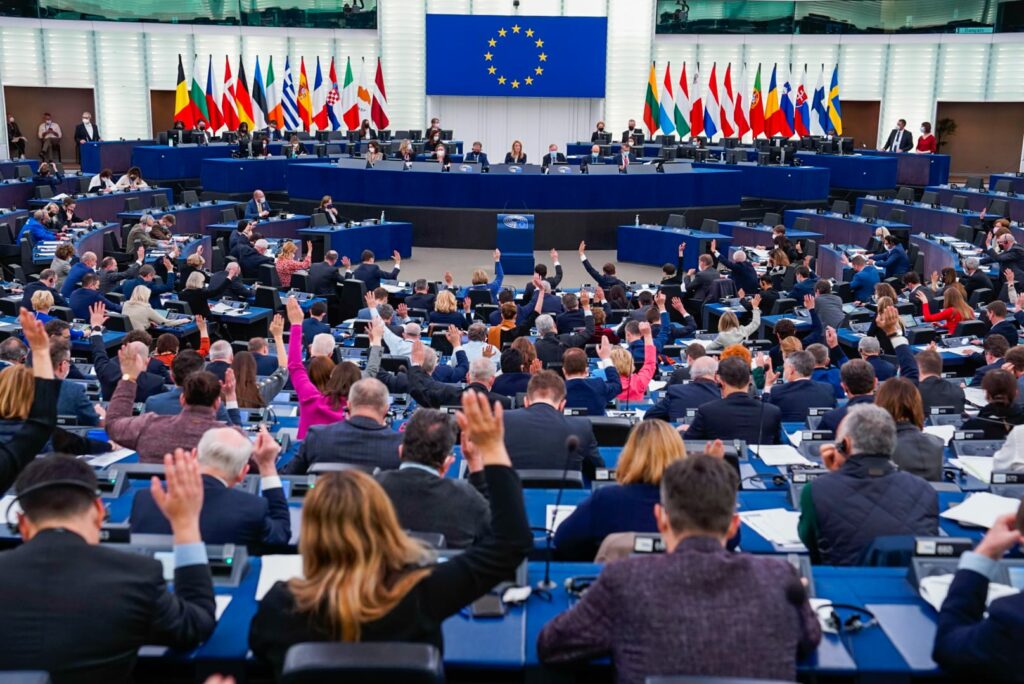A recent analysis released ahead of the International Day of Democracy has highlighted the fact that young people are conspicuously under-represented in the European Parliament.
There are currently six Members of the European Parliament (MEPs) who are younger than 30 – a number so low that there are as many parliamentarians called Martin, according to an analysis published by the European Youth Forum on Thursday. The somewhat humorous finding highlights a more serious issue within the EU institution: the younger generation is left out of making the decisions that will largely impact them.
“You don’t have to be young to support youth issues. But if young people don’t feel they are represented in parliaments, they are less likely to engage and vote," said Frédéric Piccavet, Vice President of the European Youth Forum.
One in five Europeans are between the ages of 18 and 35, while just one in 15 (6%) of MEPs are in the same age group. By contrast, one in five Europeans are between the ages of 51 and 65, but the number of MEPs representing the age group in the European Parliament is double this number, at 42%.
"Political parties need to promote young candidates from different backgrounds and genders ahead of the 2024 European elections, in order to appeal to younger voters.”
In the European Parliament, the youngest political group is the Greens/European Free Alliance, of which the average age of MEPs is 48 years, closely followed by Renew Europe, with an average age of 50.
Posing risk for political engagement
During the last European elections in 2019, a record turnout was recorded, driven by young people, according to a Eurobarometer survey commissioned by the European Parliament. The largest increase in participation was seen among young citizens under 25 years as well as the 25–39 year-olds.
Although this highlighted the fact that the younger generation values their democratic rights, the large age gap between voters and the people representing them in parliament raises questions about whether politics is out of touch and able to respond to the needs of the coming generations.
The European Youth Forum warned that age gaps between voters and politicians can have significant consequences on political participation.
Related News
- 'Bad for transparency': EU Parliament’s ‘late-night’ deal on new top positions condemned
- Brussels public services failing to integrate employees with disabilities
A recent global survey which questioned 27,043 people across multiple age ranges including 14,160 between the ages of 15 and 30 confirmed that more than 50% of people think that the age balance in politics is skewed.
More than two-thirds of people believe that political systems would be better if young people had more opportunities to have a say.
The global organisation of national parliaments, the Inter-Parliamentary Union, recommends a target of 15% of MEPs under 30, with a 50-50 gender parity, meaning the European Parliament still has a long way to go to close the age gap.

